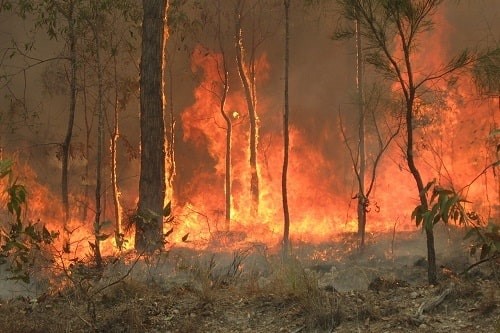2020 has started with some big risks high up in the news. From fires in Australia as a harbinger of the climate’s power, to violence in the Middle East and, closer to home, the risks involved in leaving the EU, it is these large risks that tend to dominate our attention.
Opinion
Responding to a risky world
However, if a business is like a body, we should also remember that much of what goes on is also hard to see, with multiple processes that we are barely aware of. Anyone who has ever tried to bring to mind every muscle-action that allows us to walk will understand why this is necessary. Conscious awareness of such complexity is generally overwhelming and, inevitably, can land you flat on your back.
 Bush fires in Australia have hit home the climate's power
Bush fires in Australia have hit home the climate's power
So, like a body, an organisation has to operate through a certain set of assumed procedures that don’t bear or require much reflection or thought. Or another way of saying this: stupidity has a value.
However, unlike a body – or individual – an organisation creates much bigger risks that can affect many people, even whole communities or beyond. People’s futures, their livelihood and identity, opportunities and health are bound up with the success of an organisation. That is why conscious awareness of the decisions and actions being taken at the micro-level is necessary to control any of the associated risks.
I am certain that most people want to behave ethically, but somewhere along the line what started as a top-level commitment can drift and become something very different. A vision and set of public statements about corporate responsibility doesn’t mean this is being reflected at a ground floor level. We can see this across a host of business activities, whether it is banks that sold payment protection insurance, originally for practical reasons, but ended up exploiting customers.
Or cost cutting to maintain profits that start as attempts to create efficiency savings and ended up short-changing people. Organisations might have to rely on a set of assumed procedures; they also need to make sure these don’t slide into unethical behaviour.
The same goes for the management of work-related risks. In one direction this can be seen when, for example, certain requirements to wear protective equipment while doing low risk jobs are dropped. This may, in some cases, be sensible. However, if it becomes the norm, this can generate a slide in standards and put workers at risk. In the other direction, over-application of health and safety rules can end up discrediting the very value of good health and safety. Many of our members keep on top of these calculations of under and over-application by putting health and safety on their board’s agenda.
However, for the ‘head’ of the organisation to ensure that standards don’t slide, all parts of the organisation must be made visible and be present in these deliberations. Blind spots surrounding sets of procedures always have the potential to lead to a slide in standards.
That is why we, and you, place great value in the role that workers play in partnership with managers.
It is through their involvement, thoughts and voices, that a constant stream of intelligence and knowledge-rich information can percolate throughout the organisation and build a strong health and safety culture.
An organisation is made of many bodies, and its success – ethically and financially – will depend on the respect it gives to its many voices and ensure, in the end, that it speaks with one voice.
Mike Robinson is CEO of the British Safety Council
OPINION

How stress and burnout will shape the workplace in 2026
By Charlotte Maxwell-Davies, Mental Health UK on 09 February 2026
Burnout is rapidly becoming one of the nation’s most significant workplace challenges. It is emerging as a defining issue for organisations and wider society, as the UK contends with a long-term sickness crisis driven by poor mental health. Stress can be motivating in short bursts, but when left unmanaged it contributes to work absences and lost productivity, as well as presenting a clear risk to the health of workers.

A new year, a new approach to risk?
By Mike Robinson FCA, British Safety Council on 02 February 2026
The rulebook is becoming obsolete faster than we can rewrite it. While bureaucracies labour to update yesterday’s regulations, the world of work transforms daily.

Nothing is wrong – until it is: safety in an age of permanent uncertainty
By Dr Julie Riggs, British Safety Council on 30 January 2026
The fast-moving geopolitical, environmental and social landscape is making it increasingly difficult for organisations to identify, predict and plan for emerging safety hazards and risks, making it more important than ever for safety practitioners to spot the early warning signs before serious harm occurs and alert their employer and the global OSH community.



